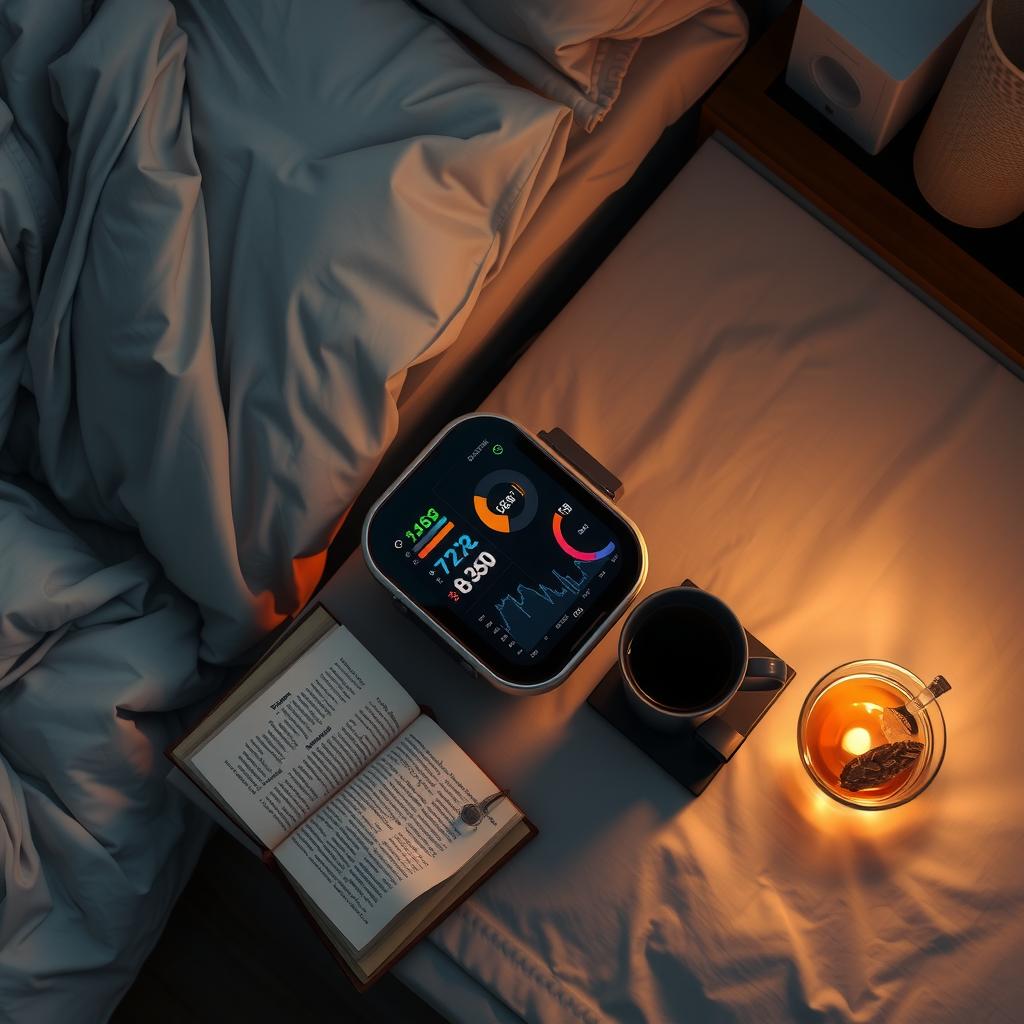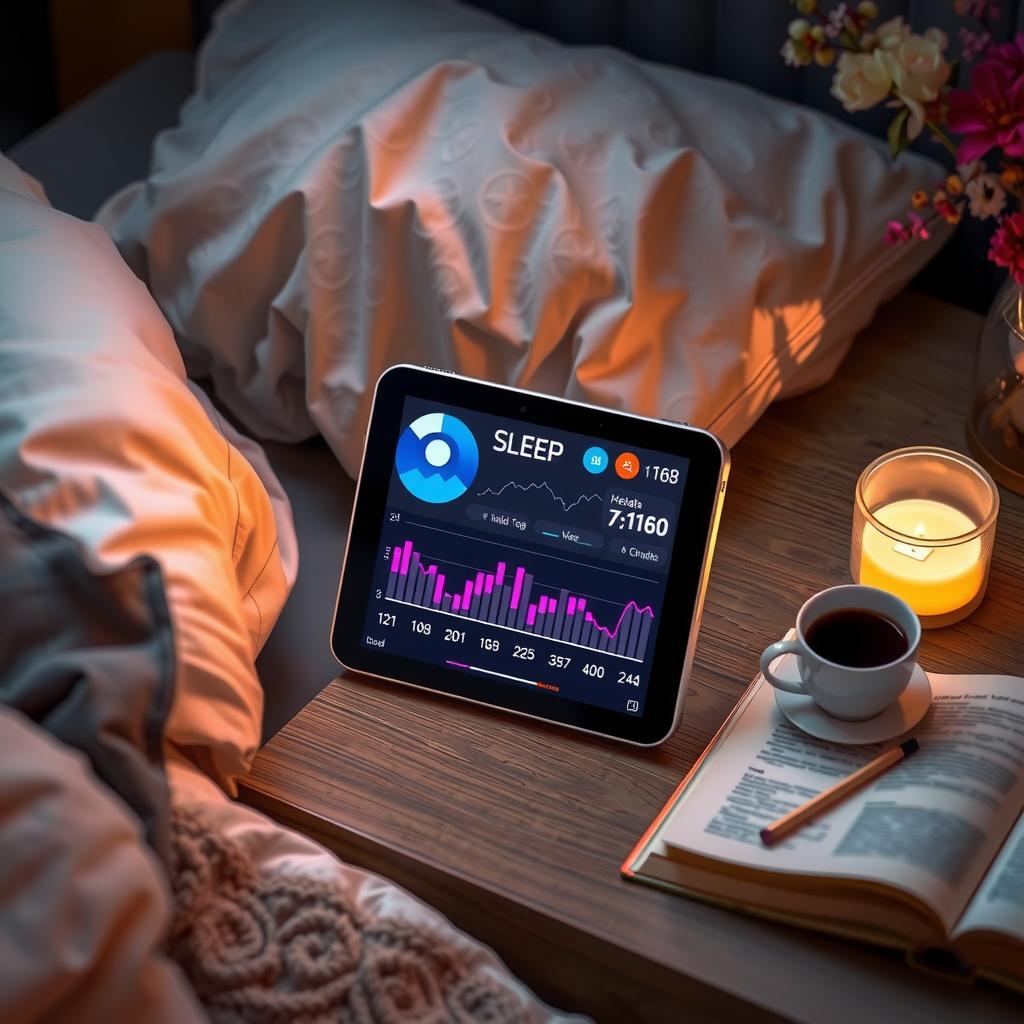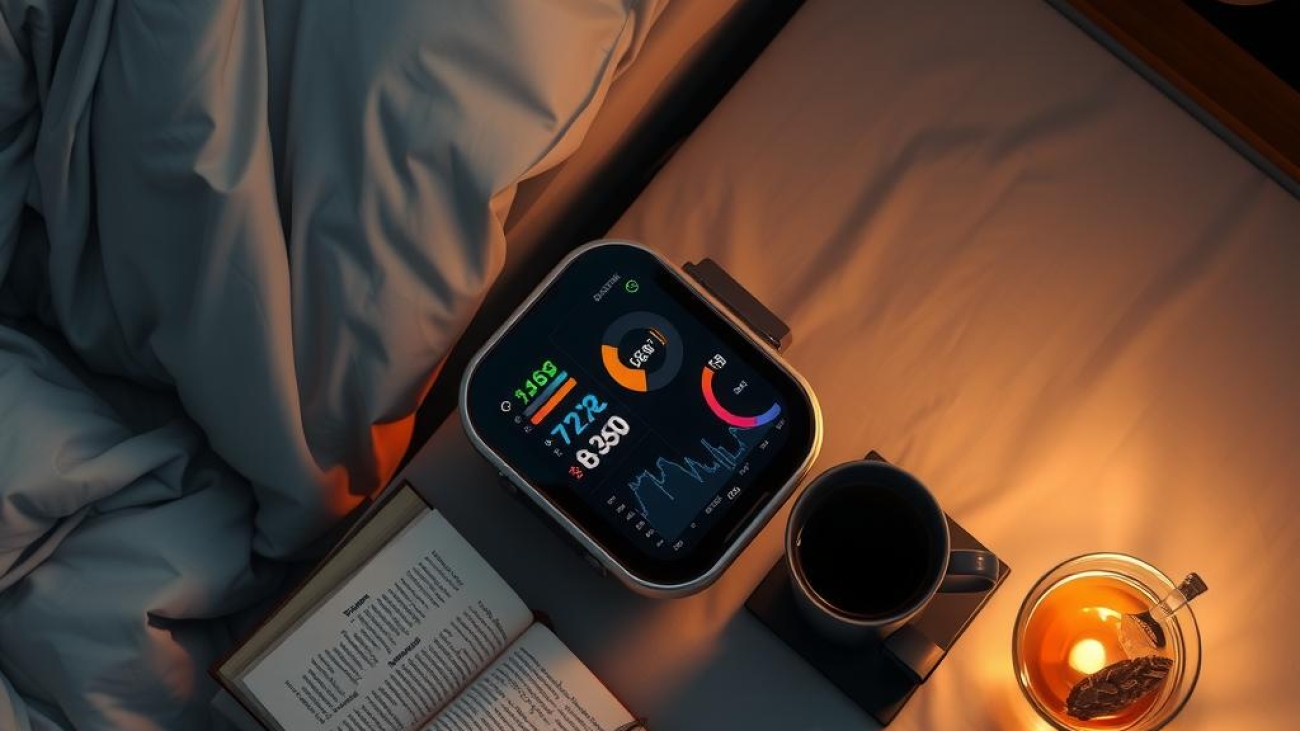How often have individuals woken up feeling groggy and disoriented, unsure if they truly got a restful night’s sleep? In today’s fast-paced world, understanding the nuances of sleep tracking metrics has become paramount for those seeking to improve their overall wellness. With an increasing number of wearables and mobile applications dedicated to monitoring sleep patterns, deciphering these indicators can be both enlightening and overwhelming. This blog post serves as a comprehensive guide to navigating the complex landscape of sleep tracking, providing readers with essential insights into various sleep metrics that contribute significantly to one’s health.
The core value of this article lies in its ability to empower readers with knowledge about their own sleep quality through effective analysis. By learning how different metrics such as total sleep time, sleep stages (light, deep, REM), and disturbances impact daily performance and long-term health outcomes, users can make informed decisions about their nightly routines. Understanding these elements not only aids in enhancing individual well-being but also fosters an awareness that promotes better health practices overall.
Moreover, this guide will unravel how tools for health tracking, like advanced smartwatches or specialized apps designed for comprehensive sleep analysis, provide users with real-time feedback on their sleeping habits. These technologies allow individuals to track changes over time—an invaluable resource for anyone looking to refine their lifestyle choices based on data rather than guesswork. As readers engage with the content presented here, they will discover actionable strategies tailored to optimize their personal rest periods by leveraging insights derived from detailed metric assessments.
In sum, this blog aims not just at informing but at transforming how people perceive rest in relation to broader wellness goals. Readers are invited on a journey toward enhanced awareness of personal sleep patterns, encouraging them not merely to seek more hours asleep but richer quality within those hours—a crucial aspect often lost in modern living’s hustle and bustle. Thus begins the exploration into understanding what each component of sleep tracking entails; it is time for everyone invested in improving their health through better rest habits to delve deeper into this essential wellness guide.

Key Insights:
-
Understanding Sleep Metrics: A Comprehensive Breakdown
The Understanding Sleep Tracking Metrics Guide provides an in-depth exploration of critical sleep metrics that play a vital role in assessing overall sleep quality. By defining terms such as REM cycles, deep sleep percentages, and wake times, this resource enables individuals to grasp the intricacies of their own sleep patterns. With this knowledge, users can make informed decisions about enhancing their nightly rest. -
Impact on Health Tracking: Connecting Data to Daily Life
Through the lens of the Understanding Sleep Tracking Metrics Guide, readers will learn how various factors influence their sleep and its subsequent effect on daily functioning. This wellness guide emphasizes the importance of interpreting data collected from sleep tracking devices accurately. As individuals understand these connections better, they gain insights into improving both their sleep quality and overall health. -
Actionable Strategies for Improvement: Enhancing Restfulness and Productivity
Equipped with practical tips found within the Understanding Sleep Tracking Metrics Guide, users can implement changes aimed at optimizing their sleep experience. The guide offers actionable strategies tailored to individual needs based on personal analysis of sleep metrics. By actively engaging with these insights, individuals can transform not only their nighttime routines but also enhance daytime focus and energy levels through effective management of their sleep analysis outcomes.

Understanding Sleep Metrics
The Importance of REM Cycles and Deep Sleep in Overall Wellness
An understanding sleep tracking indicators guide is essential for anyone looking to improve their sleep quality and, consequently, their overall wellness. Central to this understanding are key components like REM cycles, deep sleep percentages, and wake times. These metrics play a pivotal role in assessing how restorative one’s sleep truly is. Rapid Eye Movement (REM) sleep is crucial for cognitive functions such as memory consolidation and emotional regulation; it typically occurs multiple times throughout the night in cycles lasting about 90 minutes each. A healthy adult should aim for around 20-25% of their total sleeping time to be spent in REM.
In contrast, deep sleep—often referred to as slow-wave or delta sleep—is where the body undergoes critical physical recovery processes. This stage helps with tissue repair, muscle growth, and immune system strengthening. Ideally, adults should strive for approximately 13-23% of their nightly rest to occur during deep sleep phases. By integrating these insights into a personalized sleep analysis, individuals can better identify patterns that promote or inhibit high-quality rest.
Wake times also provide significant insight into one’s sleeping habits; frequent disruptions can indicate underlying issues such as stress or environmental disturbances that affect overall well-being. Monitoring wake times alongside other metrics allows users not only to gauge how long they’ve been asleep but also the quality of those hours spent resting.
To effectively track these metrics, many turn towards health tracking devices that offer real-time data on various aspects of one’s slumber through smart technology integration. Utilizing an effective wellness guide will enable users to interpret this information meaningfully—adjusting behaviors like bedtime routines or bedroom environments based on insights gleaned from consistent monitoring.
A comprehensive understanding of these vital components reinforces the importance of prioritizing quality over quantity when it comes to restful nights; achieving balanced amounts across REM cycles and deep sleep ensures optimal functioning during waking hours while minimizing health risks associated with poor sleeping habits.
By investing time into learning about sleep patterns through available tools designed specifically for sleep tracking, individuals empower themselves with knowledge that fosters healthier lifestyle choices leading toward enhanced productivity and mental clarity throughout daily activities—all stemming from simply getting better-quality rest at night.
The Connection Between Daily Habits and Sleep Quality
How Lifestyle Choices Influence Restful Nights
The interplay between daily habits and sleep quality is a critical topic in understanding overall wellness. Various elements of one’s lifestyle, including diet, exercise, and screen time, can significantly alter sleep patterns. For instance, consuming caffeine or heavy meals close to bedtime can lead to disrupted sleep due to increased heart rate or discomfort. Similarly, engaging in stimulating activities such as watching action-packed movies or working on screens can delay the onset of sleep by interfering with the body’s natural circadian rhythm. Research indicates that managing these factors effectively can enhance sleep quality considerably. One actionable strategy involves creating a consistent bedtime routine that signals the body it is time to wind down—this could include dimming lights an hour before bed or practicing relaxation techniques like deep breathing exercises. Furthermore, utilizing tools from a sleep tracking indicators guide allows individuals to monitor their nightly rest metrics closely; this data provides insights into their unique sleeping patterns and helps identify areas for improvement.
Understanding Sleep Patterns Through Health Tracking
Insights Gained from Monitoring Sleep Metrics
Understanding personal sleep patterns through health tracking has become more accessible thanks to advancements in technology. Wearable devices equipped with sensors provide real-time analysis of various aspects related to nighttime rest—from heart rate variability to movement during different stages of sleep. These metrics offer users valuable insights into their own physiological responses throughout the night, allowing them not only to gauge how well they are sleeping but also what lifestyle choices impact those results most significantly. For example, someone may discover that drinking alcohol negatively affects their REM cycle based on data collected over several nights—a revelation that could prompt them towards healthier choices for improved wellness guide outcomes. By regularly consulting this information and adjusting behaviors accordingly—such as prioritizing earlier bedtimes or incorporating moderate exercise—individuals have the power not just to react but proactively optimize their nightly recovery periods.
Actionable Strategies for Improving Sleep Quality
Practical Steps Towards Better Rest
To elevate one’s overall understanding of sleep dynamics and improve sleep quality, several practical strategies should be adopted consistently over time. First among these is maintaining a regular schedule: going to bed and waking up at the same times each day conditions the internal clock leading naturally toward restful slumber when its most needed—that golden window often falls between 10 PM-12 AM for many adults seeking optimal recovery periods after long days’ work commitments or family obligations alike! Additionally, limiting exposure two hours prior (or more) before intended shutdowns helps reduce overstimulation which directly correlates with better fall-asleep rates reported by users across diverse demographics sharing similar concerns surrounding sleeplessness issues stemming from modern life demands today! Implementing mindful practices such as yoga stretches combined alongside calming herbal teas promotes both physical relaxation while enhancing mental clarity resulting positively reflected back onto user-friendly outputs generated via corresponding app interfaces detailing individual performance trends over time ultimately highlighting progress made towards achieving desired restorative outcomes!
Emphasizing Mental Wellness Alongside Physical Health
The Role Psychological Factors Play in Sleep
Mental wellness plays an equally significant role when considering how lifestyle impacts sleep quality; stressors accumulated throughout one’s day-to-day routines inevitably affect brain activity during nighttime hours too! Techniques like journaling before bed allow individuals a chance at releasing pent-up thoughts thus minimizing anxious feelings hindering peaceful transitions into dream states later on successful implementations seen within user reports documenting shifts observed following adherence protocols established through reputable sources providing necessary frameworks guiding effective practices tailored towards improving emotional regulation alongside positive mindset cultivation possibilities emerging thereafter consequently aiding subsequent phases involved concerning restorative processes engaged nightly thereafter ensuring balance maintained holistically across all facets interrelatedly tied together harmoniously enabling ultimate goals achieved sustainably moving forward henceforth fostering enhanced resilience against future challenges faced routinely encountered along journeys ahead toward greater fulfillment achieved collectively realized universally shared aspirations held dear mutually recognized amongst peers striving diligently together onward always committed progressing continually evolving flourishing brightly under stars above illuminating paths traveled hand-in-hand united steadfast purpose undertaken resolutely embraced fully wholeheartedly without reservations whatsoever instilling confidence exuded innate potential possessed abundantly therein awaiting exploration unveiled further transformed magnificently enrich lives profoundly experienced altogether reflecting positivity radiated outward endlessly inspiring others likewise join quest embark ventures unknown yet promising uncharted territories filled wonder waiting discovery unfolding delightfully revealing treasures hidden beneath surface ready uncovered gleefully awaited arrival eager hearts willing journey forth boldly traversed navigate complexities life gracefully nurtured tenderly tended cultivated blossomed beautifully witnessed emerge fruition stunning landscapes painted vivid hues vibrant colors manifest astonishing growth evolution undergone intricately woven tapestries formed lovingly crafted cherished evermore remembered fondly engraved lifelong memories etched souls touched indelibly enriching existence shared stories transcending boundaries forged bonds strengthened enduring legacies passed history unfolding eternally timeless moments captured joyously celebrated commemorated wonderfully reminiscent masterpieces created collectively cherished dearly forever lasting impact left behind…
Taking Control of Your Sleep
Unlocking the Secrets to Restful Nights and Productive Days
In today’s fast-paced world, achieving quality sleep has become a challenge for many. To combat this issue, individuals can benefit from understanding sleep tracking indicators that provide insights into their sleep patterns and overall sleep quality. A comprehensive approach involves not only recognizing the importance of consistent sleep schedules but also leveraging technology such as wearable devices that monitor various sleep metrics. By analyzing data on sleep duration, cycles, and disturbances, users gain valuable knowledge about their personal sleeping habits. This understanding is pivotal in making informed adjustments to improve nighttime restfulness.
One practical strategy is establishing a relaxing bedtime routine that signals the body it’s time to wind down. Activities like reading or practicing mindfulness meditation can significantly enhance relaxation before bed. Moreover, creating an optimal sleeping environment—cool temperatures, minimal light exposure, and comfortable bedding—is critical in fostering better sleep conditions. Utilizing a wellness guide focused on health tracking allows individuals to set specific goals for improving their nightly rest while enhancing daytime productivity levels.
Transitioning from ordinary routines to more intentional practices requires commitment; however, integrating tools designed for sleep analysis simplifies this process immensely. By employing these tools regularly alongside behavioral changes—such as reducing caffeine intake or limiting screen time before bed—individuals can witness marked improvements over time in both mood and cognitive function during waking hours.
Ultimately, taking control of one’s sleep involves a multifaceted approach: awareness through understanding sleep tracking indicators, optimizing one’s environment for comfort and tranquility, and committing to lifestyle changes that promote healthful slumber patterns. As people embrace these strategies with dedication and patience, they unlock the potential not just for restorative nights but also invigorated days filled with heightened focus and energy.
Frequently Asked Questions:
Q: What are sleep metrics and why are they important?
A: Sleep metrics refer to various measurements that track the quality and quantity of sleep an individual gets each night. These include factors such as REM cycles, deep sleep percentages, and wake times. Understanding these metrics is essential for anyone seeking to improve their sleep quality and overall wellness. The Understanding Sleep Tracking Metrics Guide provides comprehensive insights into these terms, allowing readers to better analyze their own sleeping patterns.
Q: How can I use sleep tracking data to improve my health?
A: By closely examining the data collected through devices that monitor your sleep, individuals can identify trends or issues affecting their restfulness. For example, if a person finds they have low deep sleep percentages over time, this could prompt lifestyle adjustments aimed at enhancing those numbers. The Understanding Sleep Tracking Metrics Guide offers practical tips on making informed decisions based on one’s unique sleep analysis, thus promoting healthier habits.
Q: Can understanding my sleep patterns really affect my daily productivity?
A: Absolutely! There is a significant link between good-quality sleep and enhanced focus during waking hours. By utilizing insights from the Understanding Sleep Tracking Metrics Guide, users can learn how their nightly habits impact daytime energy levels and cognitive function. This knowledge empowers them to take actionable steps towards achieving optimal well-being by refining both nighttime rest practices and daytime routines for better productivity overall.

Add a Comment